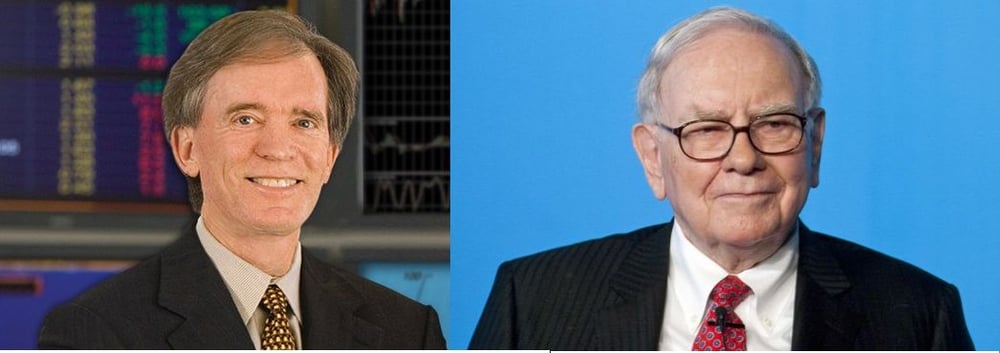Pimco bond king loading up on Uncle Sam's debt; the Oracle says steer clear
Pacific Investment Management Co.'s Bill Gross increased his holdings of Treasuries to the highest level since July 2010, while billionaire investor Warren Buffett called them “dangerous.”
Gross boosted U.S. government and Treasury debt to 38 percent of assets in Pimco's $250.5 billion Total Return Fund, the world's biggest bond fund. The position in January climbed from 30 percent in December, according to a report on the company's website yesterday.
Buffett, the chairman of Berkshire Hathaway Inc., said taxes and inflation should dissuade investors from debt. That puts him in the camp with Laurence D. Fink, chief executive officer of BlackRock Inc., the world's largest money manager, who said this week investors should have 100 percent of their holdings in equities because they offer higher returns than bonds.
“They are among the most dangerous of assets,” Buffett said yesterday in an adaptation of his annual letter to shareholders on Fortune magazine's website. “Over the past century these instruments have destroyed the purchasing power of investors in many countries, even as these holders continued to receive timely payments of interest and principal.”
U.S. 10-year yields fell four basis points, or 0.04 percentage point, to 1.99 percent as of 9:51 a.m. in New York, according to Bloomberg Bond Trader prices. They set a record low of 1.67 percent on Sept. 23.
‘Warning Label'
The difference between 10-year rates and the annual increase in consumer costs, known as the real yield, was negative 1.01 percent. The shortfall was as much as negative 2.14 percent in October, which was the most since 1980.
“Bonds should come with a warning label,” wrote Buffett, who is based in Omaha, Nebraska.
Berkshire still holds “significant amounts” of debt, mostly short-term securities, according to the investor letter.
“At Berkshire the need for ample liquidity occupies center stage and will never be slighted, however inadequate rates may be,” he wrote. “We primarily hold U.S. Treasury bills, the only investment that can be counted on for liquidity under the most chaotic of economic conditions.”
Gross, based in Newport Beach, California, has also addressed negative real yields, calling them a form of “financial repression” in his investment outlook released last month.
Pimco is favoring Treasuries due in five, six and seven years because of the Federal Reserve's pledge to keep short-term rates low, Gross said Feb. 3 in an interview with Tom Keene and Ken Prewitt on the “Bloomberg Surveillance” radio program.
Inflation Outlook
The Fed is “not really afraid of higher inflation,” making 10- and 30-year Treasuries unattractive, he said.
Central bank policy makers signaled in their Jan. 25 policy statement that they will keep the benchmark interest rate at virtually zero until at least late 2014, and Chairman Ben S. Bernanke said he's considering buying bonds to sustain the expansion. Bernanke told U.S. lawmakers on Feb. 2 that he's not seeking faster inflation as he tries to create jobs.
The Total Return Fund (PTTRX) has about 8 percent of its holdings in Treasury Inflation Protected Securities in an “inflation bet,” Gross said in the Feb. 3 interview.
TIPS Returns
Investors who seek the safety of Treasury bonds will have minimal returns as the Fed holds down interest rates, New York- based Fink said in a Feb. 8 interview with Susan Li on Bloomberg Television's “First Up.”
Europe's struggle to contain a sovereign-debt crisis has driven investor demand for refuge assets, making U.S. Treasuries must-have securities in the past year.
They returned 10 percent in the 12 months to yesterday, and TIPS handed investors a 17 percent gain, according to Bank of America Merrill Lynch indexes. A gauge of bonds around the world returned 7.6 percent, the data show.
The MSCI All Country World Index (MXWD) of stocks fell 1.7 percent in the period after accounting for reinvested dividends, according to data compiled by Bloomberg.
The difference between yields on 10-year notes and TIPS, a gauge of trader expectations for consumer prices over the life of the debt, was 2.20 percentage points. The average over the past decade is 2.14 percentage points.
--Bloomberg News--







